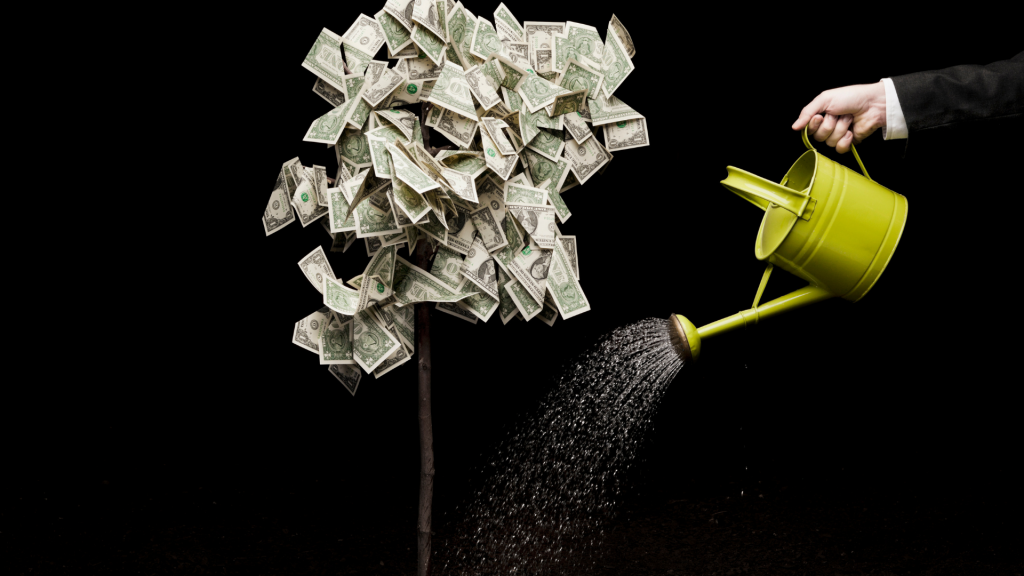Planning your household finances is a big part of making headway toward your overall goals. As you put together your plan, here are a few things to keep in mind.
Planning your household finances should be a major part of how you move forward. Whether you want to cover an emergency tomorrow or retire early in 10 years, preparing now is vital.
8 things to include in your household finances
As you get organized, here are eight things your household finances should include.
Spending plan
That's a given. It doesn't matter how much or how little money you have coming in. You need to know where it's going and how you spend it. A spending plan is the first step in understanding your income, your expenses, and your spending habits. Then, you can balance all of it.
An emergency fund
It can be as little as $20 or as big as a year's salary. Having something put aside in the event of an emergency is essential. And yes, even $20 can make a difference. That $20 can buy a number of things in a pinch. It won't cover all of your emergencies, but it's a start.
Once you begin seeing better finances, you can increase how much goes into your emergency fund.
A contingency plan
Your FU fund is all about being able to switch on a dime if needed. When I was in journalism school, several of our professors suggested an FU fund in the event we were asked to do something unethical. If you're ever in a circumstance that's harmful, physically or emotionally, having money set aside (and a plan for how to use it) will give you the freedom to leave.
This applies to jobs, relationships, and other situations. Make sure you have plans set out about how you will proceed if you need to access your FU fund. And you need that FU fund to be in YOUR name only. So an abusive partner can't get to it if it becomes necessary to leave.
Entertainment/fun money
Being frugal and watching every single penny gets exhausting. Designate a few dollars every month. Even $25 will help you do something fun and relaxing. For $25, you can rent a movie and get a pizza. Or go to a happy hour for a drink. Or make a small, frivolous purchase. Something to help keep your sanity.
I also like to prepare for fun with the help of a fun fund. Set aside a few dollars a week for this fund and tap into it when you want an evening out. Or if you want to make an unplanned purchase. Planning ahead now can mean less stress later.
List of free activities
Having a go-to list of free activities is helpful, particularly if you have kids. While you can keep a kid entertained at home with toys, books, games, and the like, they do get stir-crazy and need to get out. Finding a way to burn off that energy and leave the four walls of your home for free is very necessary.
This works for you as well. In my town, there's free live music available at least two nights a week during the summer. In the winter, there are several snowshoe and cross-country ski trails. Check for free museum days and open-mic nights at local businesses, and think about some ways you can get outdoors. Your town's community calendar might also have a list of free activities for families, couples, and singles.
Cheap meals
There might be times when the grocery budget is a little short. Maybe you don't have the space to stockpile, so your pantry doesn't allow for you to have a pantry/freezer week of meals. If that's the case, having a menu plan of cheap meals will get you through until you have more money.
Some of my favorite cheap meals include:
- Pasta and veggies
- Soup
- Grilled-cheese sandwiches
- Something rice-based
- Breakfast for dinner
I wrote a post for Money Talks News with seven affordable dinner party recipes. I find that these work really well even when I'm home on my own. Plus, I can have leftovers.
Debt repayment or savings strategy
Maybe you need both of these things at once. If you are in debt, you must have a plan for how to get out of it. Debt is awful, and your stress level will decrease tremendously once you know you have a plan to eliminate it.
If you're out of debt, you need to have a savings strategy to prepare yourself and your loved ones for the future. This, too, will give you peace of mind. A savings strategy to help you work toward various goals can help you be ready for what's next and provide you with something to work toward.
Don't forget that part of your long-term savings strategy for things like retirement should also include investing. Put together an investing plan for your future as you move forward with debt repayment and savings.
Trust
If you're in a relationship where expenses are shared, you have to be able to trust your partner. That means having open and honest discussions about money, not lying or hiding purchases, coming clean about any outstanding debts, and having regular money meetings to make sure you are on the same page.
You both need to understand your budget and agree on it. One person cannot dictate the way money is spent; it needs to be a mutual effort.
Even if you aren't sharing all your finances, trust is important. That way, you know you can rely on each person to do their part. If you're sharing household costs, you need to know your partner will put in their amount regularly—and on time.
Bottom Line
Your household finances require ongoing upkeep. Carefully consider what makes sense for your situation and organize your finances so they meet your needs.



